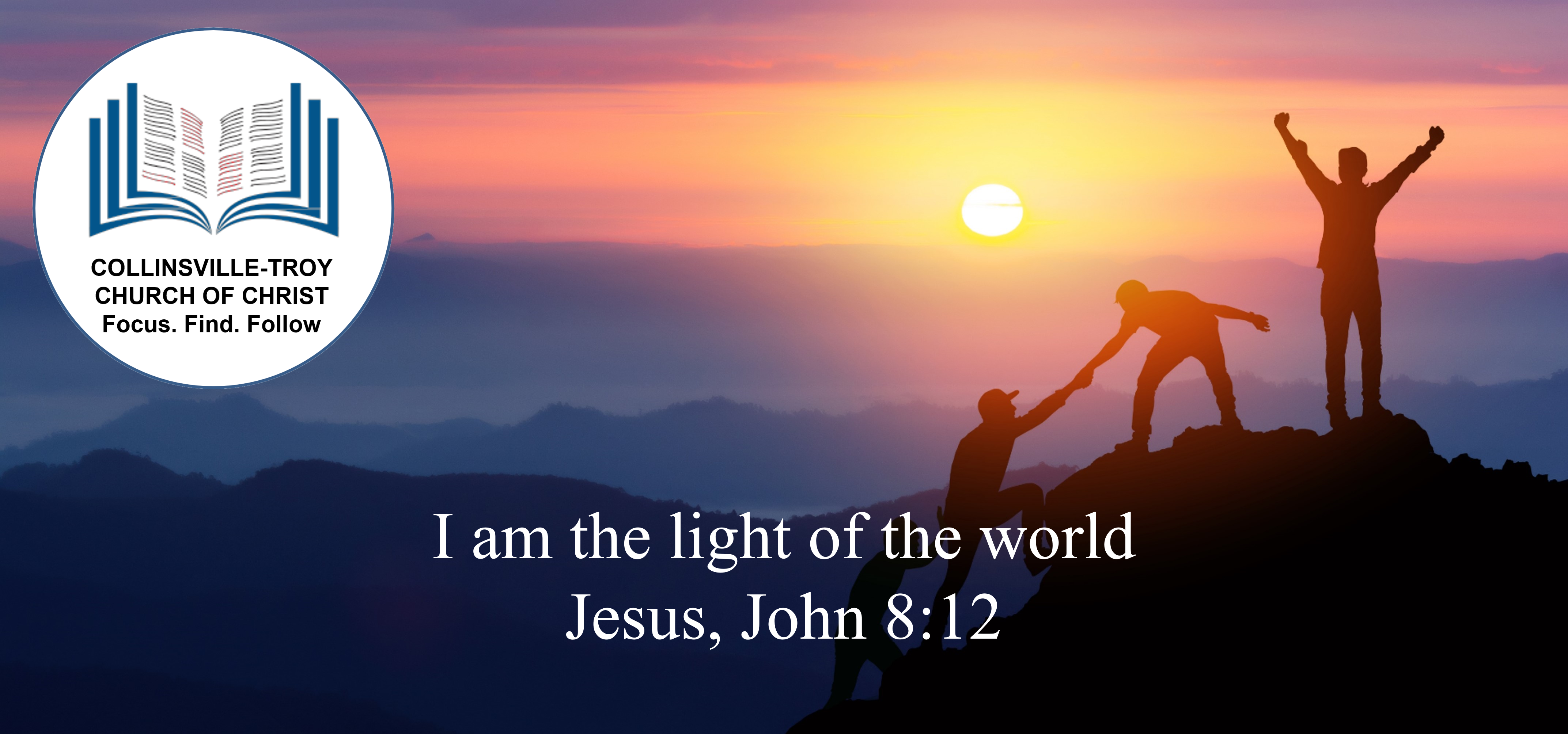The Simple Gospel
Jason Wright
I am a simple person. How about you? An article I read about simplicity said there are 10-character traits that make a person simple; honesty, genuine, polite, good communicator, generous, thoughtful, positive, grateful, minimalist (don't need a lot to have joy), and kind. Well, after reading that list, I have some work to do.
As I think about the Old Law, simple does not come to mind; complicated does. From creating a golden calf at Mt. Sinai to intermarrying with pagans, the Jews found the Old Law impossible to keep. We see in the New Testament the struggles Jewish Christians had in keeping the Old Law where it needed to be... out of the New Law.
(Acts 15), Christian Pharisees from Judea were teaching that in order to be saved a Gentile had to be circumcised (vs. 1). Paul and Barnabas were sent by the church in Antioch to Jerusalem to discuss this with the elders and apostles. How was this controversial topic discussed by these wise men? Notice verse 6-7... now the apostles and elders came together to consider this matter. And when there had been much dispute, Peter rose up and... That word dispute means questioning and reasoning. Seems like a peaceful meeting of the minds. Peter made several points. First, God made it clear that Gentiles should hear the gospel. Second, there is no difference between Jew and Gentile when it comes to salvation. Third, matters of the law are nothing but an unnecessary yoke around Gentile's necks. Finally, all of us, Jews and Gentiles alike, can be saved by the grace of our Lord Jesus Christ.
We complicate simple things when we add or take away. That is why we are commanded to do neither (Rev. 22:18-19). The simple gospel saves man from eternal punishment (Rom. 1:16). The simplicity of the gospel creates new people with a heart focused on Jesus instead of on self. How simple is it? God so loved the world that He gave His only begotten Son and whosoever believes in Him shall not perish but have everlasting life (Jn. 3:16).
Later in Acts 15:19, James said, judge that we should not trouble (annoy) those among the Gentiles who are turning to God. There was no need for Gentile's to be circumcised to be saved. There are no more animals to be sacrificed (Heb. 9). In fact, Jesus has appeared to put away sin by the sacrifice of Himself, so Christ was offered once to bear the sins of many (Heb. 9:26, 28). The gospel defined is the death, burial and resurrection of Jesus Christ (I Cor. 15:1-4). Simple!
Get To Know the Elder Candidates:
Landon Sarver
Landon & Lora Sarver both grew up in Cowden Il and have been married since 1990. Landon joined the U.S. Air
Force in 1992 and served as an Electrical Power Production Craftsman and later as a Construction Project
Manager retiring from the military in 2014. He was then hired in 2014 as a federal government civilian
employee working as a service contract manager. In 2017 Landon accepted a position at Scott AFB in the same
role and moved to Lebanon Il. where he and Lora currently reside.
During Landon's AF career, he and his family has worshiped with congregations in Texas, California,
Missouri, Florida, and have been at Collinsville-Troy since 2017.
Landon & Lora have 2 daughters Moriah and Leah along with 5 grandkids.
Wes Deweese
Wes and Judy Deweese reside in Troy. They met at East St. Louis Senior High in 1969 and were married on Feb. 2, 1974 at the Fairview Heights congregation. Wes worked for Stephens Hardware in Washington Park from 1966 to 1977 and early retired from Ameren Illinois' gas department in 2005 after 28 years. He retired as a union pipefitter in 2016. Judy retired from the Triad School District after 18 years.
Wes's family moved to the area around 1957 from Western Ky. They attended the Rosemont and State Street congregations in East St. Louis. Wes was baptized in 1966. Judy obeyed the gospel in 1970. Over the years they have worshipped at Fairview Heights and Greenville. They've attended the Collinsville Congregation since 1976. Wes has previously served as a deacon and an elder at Collinsville.
Wes and Judy have 3 children, Christopher, Joseph and Carrie and 10 Grandchildren. They enjoy spending time with grandchildren, traveling and relaxing in their travel trailer. Wes enjoys fixing things, welding projects and shooting sports.
Ty Yager
Ty and Becky Yager reside in Troy. They met in Abilene, Texas in 1995 and were married on August 1st1998. Ty retired from the Air Force after 24 years of active duty and still works for the Air Force as a civilian employee. Ty was military police for the first eight years of his Air Force career. The remainder of his active duty and civilian career have been as a management analyst. Becky has taught elementary education in numerous states and currently runs daily operations of the family business.
Ty is originally from Michigan and Becky is originally from Colorado. After meeting in Texas, they moved to Hawaii, then back to Texas before moving to this area in 2007. They have been a member of the Collinsville-Troy Church of Christ since moving to the area. Ty was baptized in 1999, while Becky was baptized in 1986. Ty was a deacon at the Ventura Church of Christ.
Ty and Becky have 3 children, Josh, Alec and Sam. They also have 2 grandchildren, Edward and Bailey.They enjoy spending time with family and playing with their 2 dogs. Ty enjoys watching sports and tinkering with old cars.



